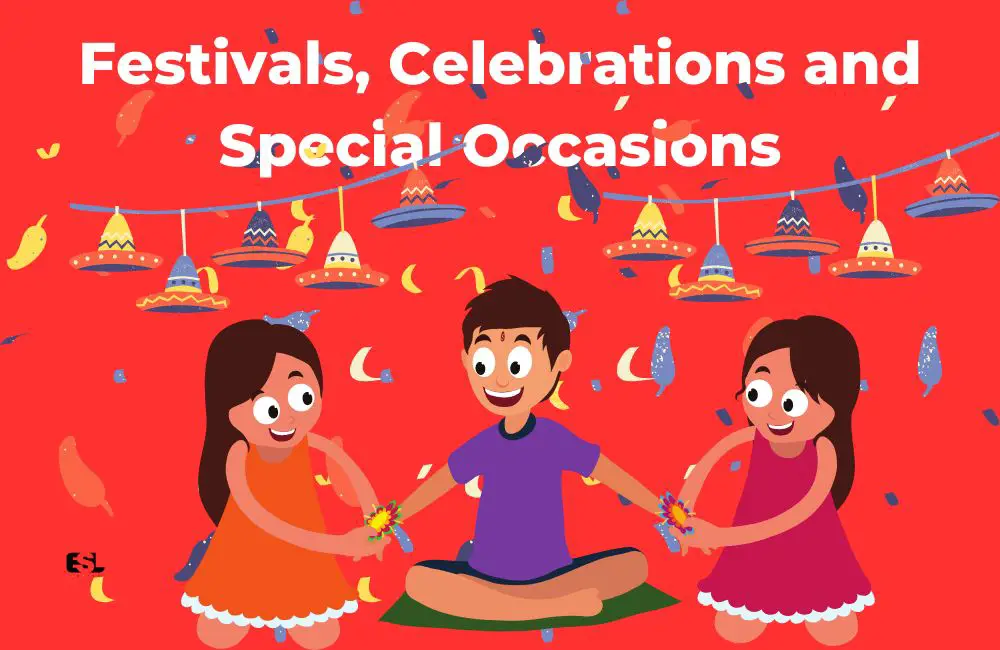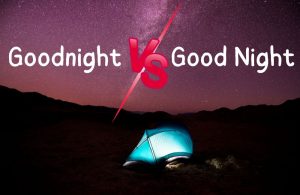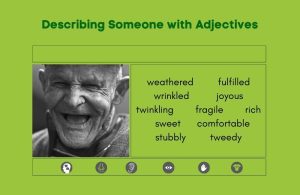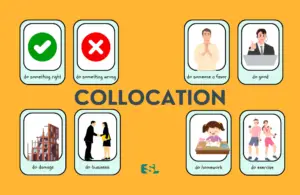As social beings, we mark our calendars with an array of events that bring us together in celebration. These special occasions, from annual festivals and holidays to birthdays and anniversaries, allow us to commemorate significant moments and express collective joy.
To help you describe these events with more color and detail, we’ve curated a vocabulary list commonly associated with festivals, celebrations, and special occasions. The list has been organized into several categories, each complete with definitions and example sentences.
Table of Contents
- 1. General Vocabulary for Celebrations
- 2. Vocabulary for Weddings
- 3. Vocabulary for Birthdays
- 4. Vocabulary for National Holidays and Festivals
- Sample Conversation: Discussing Festivals, Celebrations, and Special Occasions
- Conclusion
- 10 Frequently Asked Questions Related to Festivals, Celebrations, and Special Occasions Vocabulary
1. General Vocabulary for Celebrations
Here are some general terms that can be used to discuss various celebrations and festivities.
| Word/Phrase | Meaning/Usage | Example Sentences |
|---|---|---|
| Festivity | The celebration of something in a joyful and exuberant way | “The entire city was buzzing with festivity during the carnival.” |
| Gala | A social occasion with special entertainments or performances | “The annual charity gala was a star-studded event.” |
| Revelry | Lively and noisy festivities, especially when these involve drinking a large amount of alcohol | “New Year’s Eve was marked with revelry and fireworks.” |
| Jamboree | A large celebration or party, typically a lavish and boisterous one | “The music festival turned into a three-day jamboree.” |
| Soiree | An evening party or gathering, typically in a private house, for conversation or music | “She was invited to a soiree at her professor’s house.” |
| Shindig | A large, lively party, especially one celebrating something | “The company’s annual shindig was held at a fancy hotel.” |
| Bash | A party or social event | “He is throwing a big birthday bash this weekend.” |
| Jubilee | A special anniversary of an event, especially one celebrating twenty-five or fifty years of a reign or activity | “The company celebrated its silver jubilee this year.” |
| Hoedown | A social gathering at which lively dancing would take place | “The country club organized a hoedown every summer.” |
| Masquerade | A false show or pretense; a party, dance, or gathering where participants wear masks and often costumes | “The theme of the party was a Venetian masquerade.” |
| Conviviality | The quality of being friendly and lively; friendliness | “The conviviality of the gathering was infectious.” |
If you are searching for an effective English language vocabulary builder, try Word Power Made Easy: The Complete Handbook for Building a Superior Vocabulary (Amazon Link). This time-tested classic has helped millions achieve mastery of English and improve their communication skills in business, the classroom, and in life.
2. Vocabulary for Weddings
Weddings are joyous events filled with unique customs and traditions. Here are some terms to describe various aspects of weddings.
| Word/Phrase | Meaning/Usage | Example Sentences |
|---|---|---|
| Nuptials | Wedding ceremony | “The royal nuptials were broadcasted worldwide.” |
| Matrimony | The state of being married | “They were united in holy matrimony in a beautiful beach ceremony.” |
| Bridal | Of or concerning a bride or a wedding | “Her bridal gown was stunning.” |
| Groom | A man on his wedding day, or just before or just after it | “The groom was waiting anxiously at the altar.” |
| Bachelorette party | A party given for a woman who is about to get married | “She had a wild bachelorette party in Las Vegas.” |
| Best man | The chief male attendant of the bridegroom at a wedding | “His brother served as his best man at the wedding.” |
| Maid of honor | The chief female attendant of a bride at a wedding | “Her childhood best friend was her maid of honor.” |
| Reception | A formal party held after the completion of a ceremony, especially a wedding | “The wedding reception was held in a grand ballroom.” |
| Honeymoon | A holiday taken by newlyweds immediately after their wedding | “They planned a two-week honeymoon to the Maldives.” |
| Vows | A solemn promise made by a person to perform some act or make some gift or sacrifice, in testimony of the sincerity of his faith or his love and loyalty towards someone or something, and often confirmed by an oath | “They wrote their own wedding vows.” |
| Bridal shower | A gift-giving party held for a bride-to-be in anticipation of her wedding | “Her friends organized a surprise bridal shower for her.” |
3. Vocabulary for Birthdays
Birthdays are personal celebrations marking the day of one’s birth. Here are some words that describe different facets of birthdays.
| Word/Phrase | Meaning/Usage | Example Sentences |
|---|---|---|
| Birthday bash | A birthday party | “She’s throwing a huge birthday bash for her 30th.” |
| Milestone | An important point in progress or development | “His 21st birthday was a major milestone.” |
| Birthday suit | A state of total nudity | “The baby was running around in his birthday suit.” |
| Wish | A desire or hope for something to happen | “Make a wish before you blow out the candles.” |
| Surprise party | A party or celebration planned for someone without their knowledge | “We organized a surprise party for mom’s 50th birthday.” |
| Birthday boy/girl | The person whose birthday is being celebrated | “The birthday girl was dressed in a sparkly dress.” |
| Cake | A sweet baked food made from a mixture of flour, sugar, and other ingredients | “The birthday cake was chocolate flavor.” |
| Party favors | Small gifts given to the guests at a party as a gesture of thanks for their attendance | “We prepared party favors for all the birthday guests.” |
| Toast | A call to a gathering of people to raise their glasses and drink together in honor of a person or thing, or an instance of drinking in this way | “We raised a toast to the birthday boy.” |
| Balloons | A brightly colored rubber sac inflated with air and then sealed at the neck, used as a children’s toy or a decoration | “The room was decorated with colorful balloons.” |
| Presents | A thing given to someone as a gift | “She received lots of presents for her birthday.” |
4. Vocabulary for National Holidays and Festivals
National holidays and festivals are occasions that hold a special place in the hearts of the people. They are often filled with traditional activities, food, and gatherings. Here are some words that describe these special occasions.
| Word/Phrase | Meaning/Usage | Example Sentences |
|---|---|---|
| Parade | A public procession, especially one celebrating a special day or event | “The Independence Day parade was a grand spectacle.” |
| Fireworks | A device containing gunpowder and other combustible chemicals that causes a spectacular explosion when ignited, used for display or in celebrations | “We watched the fireworks light up the night sky on New Year’s Eve.” |
| Public holiday | A day when most people do not have to go to work, especially one that celebrates something | “Most people went out of town during the public holiday.” |
| Tradition | The transmission of customs or beliefs from generation to generation, or the fact of being passed on in this way | “The tradition of caroling during Christmas is still alive in many cultures.” |
| Feast | A large meal, typically a celebratory one | “We had a feast on Thanksgiving Day.” |
| Decorations | The process or art of decorating or adorning something, or a thing that serves as an ornament | “The Christmas decorations in the city center were beautiful.” |
| Ceremony | A formal religious or public occasion, especially one celebrating a particular event, achievement, or anniversary | “The Remembrance Day ceremony was very solemn.” |
| Celebrate | Mark something by festivities or other deviation from routine | “Every year, we celebrate Independence Day with a family picnic.” |
| Festival | A day or period of celebration, typically for religious reasons | “The town has an annual strawberry festival.” |
| National Anthem | The official patriotic song of a nation that is played on public occasions | “We stood up when the national anthem was played.” |
To elevate your vocabulary in just 30 days, I recommend to my students an informative, fun, and accessible guide to utilizing powerful language. Millions of individuals have enhanced their academics, job skills, and confidence by dedicating just fifteen minutes daily to the exercises and tests of 30 Days to a More Powerful Vocabulary (Amazon Link), a top-selling. It offers step-by-step methods to bolster language prowess, discover compelling words, and daily vocabulary enhancement with pronunciation guidance.
Sample Conversation: Discussing Festivals, Celebrations, and Special Occasions
Situation: Ella and Leo are international students, and they’re sharing stories about the festivals and special occasions from their respective countries.
Ella: Hey Leo, with Diwali around the corner, I’m feeling quite nostalgic about the celebrations back home.
Leo: Oh, Diwali! That’s the festival of lights, right? I’ve always been fascinated by the vibrant decorations and firework displays.
Ella: Yes, exactly! Families come together for feasts, decorate their homes with lanterns and rangoli, and exchange gifts. It’s a time of rejoicing and spreading goodwill.
Leo: Sounds wonderful! We have a similar festive spirit during Lunar New Year. There’s a lot of red everywhere, representing good luck. We also have lion dances and parades.
Ella: I’ve heard about it! And isn’t there something called mooncakes that you exchange during the Mid-Autumn Festival?
Leo: That’s right! Mooncakes are traditional pastries filled with lotus paste and sometimes salted egg yolk. It’s a custom to gift them to friends and family.
Ella: Festivals truly bring out the cultural richness of a place. It’s beautiful how they unite people and keep traditions alive.
Conclusion
Whether it’s a wedding, birthday, or national festival, each celebration brings its own unique blend of joy, togetherness, and tradition. With this guide to vocabulary for festivals, celebrations, and special occasions, you’ll be better equipped to describe these memorable events.
From the grandeur of a gala to the intimacy of a soiree, the conviviality of a shindig to the solemnity of a ceremony, each term adds a new layer of understanding to our collective expressions of celebration. Keep exploring these words and bring them into your everyday conversation to enrich your English vocabulary.
10 Frequently Asked Questions Related to Festivals, Celebrations, and Special Occasions Vocabulary
1. What’s the difference between a festival and a celebration?
A festival is usually a specific event characterized by a day or period of commemoration or observance, often rooted in religious or cultural practices. It might have traditions, activities, or rituals attached to it. On the other hand, a celebration is a more general term, encompassing any act of marking a special occasion or achievement, regardless of its cultural or religious significance. Celebrations can be personal, like birthdays, or more widespread, like national independence days.
2. Can the word ‘holiday’ be used interchangeably with ‘festival’?
Not always. While both are days of observance or commemoration, a holiday typically implies a break from routine, such as a day off from work or school. A festival, however, places more emphasis on the cultural or religious activities, traditions, and celebrations associated with a particular occasion. In some contexts, they might overlap, but their nuances are distinct.
3. How can I describe the atmosphere of a festival?
The atmosphere of a festival can be described using terms like jubilant, spirited, festive, exhilarating, or even contemplative, depending on the nature of the festival. The ambiance is often electric with excitement, anticipation, and a shared sense of community.
4. What vocabulary can I use to describe festival foods?
Festival foods can be described as sumptuous, mouth-watering, traditional delicacies, or even exotic. These foods often have a deep-rooted cultural or historical significance and are eagerly anticipated by attendees.
5. How can I talk about the cultural aspects of a festival?
To discuss the cultural aspects of a festival, delve into its customs, rituals, and traditions. Mention the historical background, legends, or stories associated with it. Emphasize the values, beliefs, and societal significance it embodies.
6. Are there specific terms to describe festival attire?
Certainly! Festival attire can be referred to as ceremonial outfits, ethnic wear, traditional costumes, or cultural regalia. These attires often carry symbolic meanings and are worn with pride and reverence during the festival.
7. How can I describe music and dance at festivals?
Festival music and dance can be described as rhythmic, soul-stirring, traditional beats, or even contemporary fusion. They often reflect the region’s cultural heritage, and the performances can be both spontaneous expressions of joy or meticulously choreographed presentations.
8. How can I talk about the significance of a festival?
Discussing the significance of a festival involves exploring its historical origins, the religious or cultural beliefs it represents, and its impact on the community. It’s also valuable to mention any moral or ethical lessons it imparts and how it strengthens communal bonds.
9. What words can describe festival decorations?
Festival decorations can be termed as vibrant, intricate, symbolic adornments, or handcrafted embellishments. These decorations, whether they are lanterns, banners, or floral arrangements, enhance the festive mood and often have symbolic meanings.
10. How can personal celebrations differ from public festivals?
Personal celebrations are intimate occasions, tailored to individual preferences and often celebrated with close friends and family. They might mark personal milestones like birthdays, anniversaries, or achievements. In contrast, public festivals are large-scale events, celebrating shared cultural or religious occasions. They involve broader community participation and often have set rituals and traditions.





